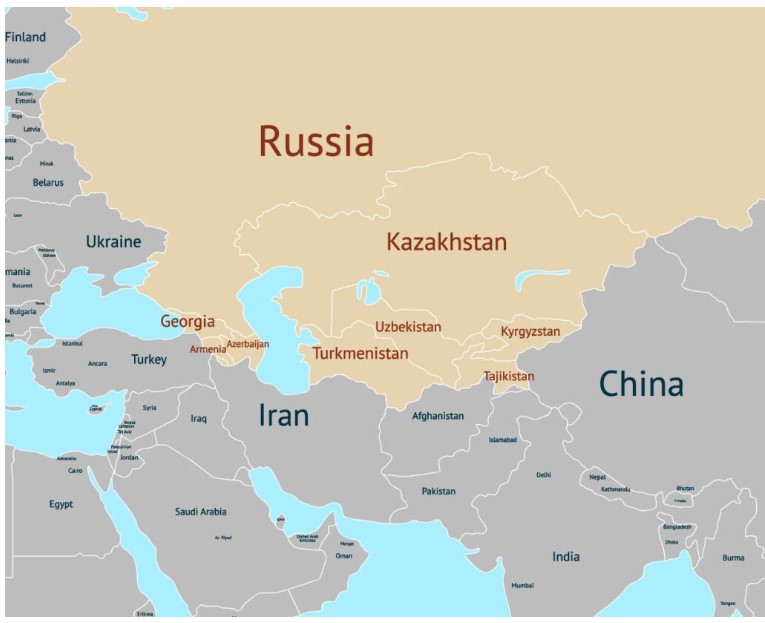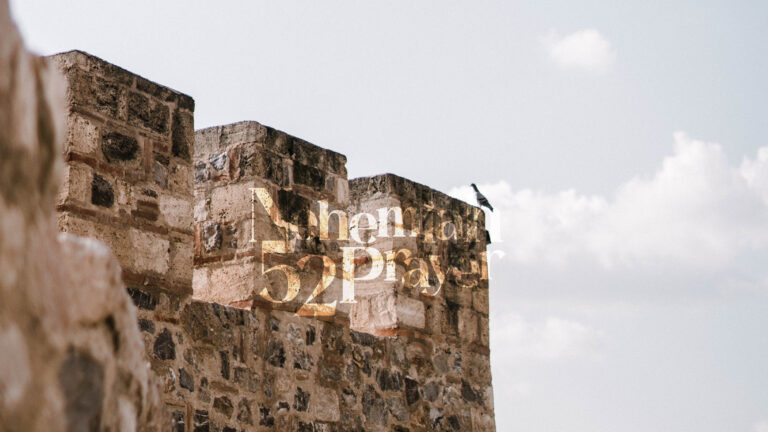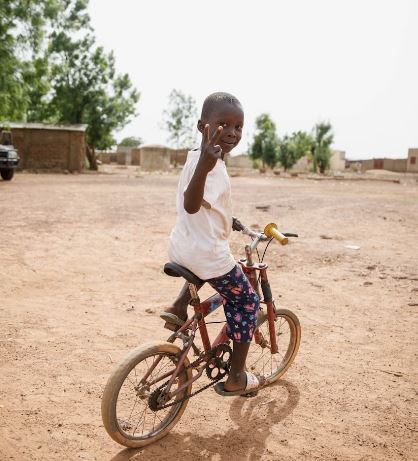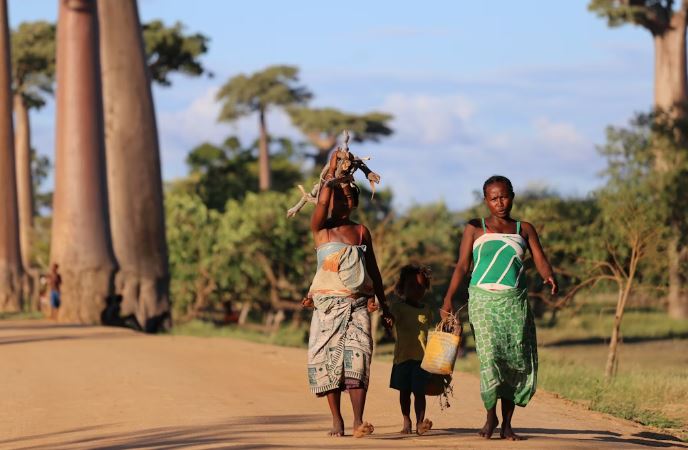“Central Asia, the Lamb will lead you to springs of living water!
“For the Lamb at the center of the throne will be their shepherd; ‘he will lead them to springs of living water.’ ‘And God will wipe away every tear from their eyes.’”(Revelation 7:17,NIV)

》 Continent Profile
Population | 77.88 million
Area | 3.98 million ㎢
People Groups | Uzbeks 39.5%, Kazakhs 19.3%, Tajiks 11.9%, Kyrgyz 6.9%, Russians 6.6%, Turkmens 6.3%, Kulovi 1.1%, Tatars 1.0%, Karakalpaks 1.0%, Ukrainians 0.8%, Uyghurs 0.6%, Others 5.7%,
Religion | Muslims 79.4%, Atheists 14.7%, Protestants 5.5% (Evangelicals 0.6%), Buddhists 0.1%
Total Languages | 85
Bible Translations | Completed 45, New Testament 15, Partial 14
Economy| GDP per capita is approximately $11,512
》 About Central Asia
Central Asia mainly refers to the five countries that gained independence from the former Soviet Union. The region is home to about 100 ethnic groups, which contribute to its cultural diversity. The people share a religious identity as Muslims, mostly folk Muslims. It is the most landlocked region in the world, extremely dry, and consists of deserts, high mountains, and steppes. Historically, it was a central point for global trade and the Silk Road, which connected the East and the West, allowing for the exchange of culture, ideas, economy, and religion.
Islam entered Central Asia in the 7th century, and an Islamic civilization led by the Turks began to emerge. From the mid-17th century, the region began to establish diplomatic ties with Russia and was conquered by the Russian Empire in the 19th century. After the fall of the Russian Empire, the region was annexed by the Soviet Union in the early 20th century. Following the collapse of the Soviet Union in 1991, the countries gained independence. However, they continue to be influenced politically, militarily, economically, and culturally by Russia.
After gaining independence from the Soviet Union, all the countries experienced dictatorship. Since they were accustomed to one-party rule, there was little resistance to it. In Tajikistan, President Emomali Rahmon has been in power for over 30 years, maintaining a long-term dictatorship. Other countries also saw brief periods of democratization, but after a change in presidents, authoritarian regimes were re-established, and power was passed down through family lines.
Economy | During the Soviet era, collective farms and military bases were integral to Central Asia’s economy under communism. After the dissolution of the Soviet Union, the region faced severe instability, including hyperinflation, ethnic tensions, and border disputes. Despite these challenges, the nations transitioned to a market economy and joined the global economic community. Kazakhstan and Uzbekistan pursued active foreign economic policies, achieving significant development. However, high unemployment and inadequate infrastructure left many nations reliant on remittances from workers in Russia. The Russia-Ukraine war has significantly disrupted these financial lifelines.
Religion | Islam in Central Asia has been heavily secularized under Soviet influence, making it more liberal than in many Arab countries. Unlike those regions, Central Asia has relatively relaxed attitudes toward women’s attire, alcohol consumption, and dietary practices. However, regions like eastern Uzbekistan and southern Kyrgyzstan have been influenced by Wahhabism, leading to stricter observances. In recent years, economic struggles, unemployment, poverty, and political instability have contributed to the spread of Islamic fundamentalism, with some individuals joining militant groups in Afghanistan. The Nestorian missionaries’ efforts along the Silk Road (A.D. 431–1600) were deeply committed and strategically impactful, extending Christianity to Korea, China, and Japan. While religious persecution in Central Asia is less severe than in the Middle East, restrictions stemming from Russian-influenced religious laws have imposed significant limitations on Christian activities, including the expulsion of missionaries.
》 Scripture Focus
| Revelation 7:9-17(NIV) 9 After this I looked, and there before me was a great multitude that no one could count, from every nation, tribe, people and language, standing before the throne and before the Lamb. They were wearing white robes and were holding palm branches in their hands. 10 And they cried out in a loud voice: “Salvation belongs to our God, who sits on the throne, and to the Lamb.” 11 All the angels were standing around the throne and around the elders and the four living creatures. They fell down on their faces before the throne and worshiped God, 12 saying: “Amen! Praise and glory and wisdom and thanks and honor and power and strength be to our God for ever and ever. Amen!” 13 Then one of the elders asked me, “These in white robes—who are they, and where did they come from?” 14 I answered, “Sir, you know.” And he said, “These are they who have come out of the great tribulation; they have washed their robes and made them white in the blood of the Lamb. 15 Therefore, “they are before the throne of God and serve him day and night in his temple; and he who sits on the throne will shelter them with his presence. 16 ‘Never again will they hunger; never again will they thirst. The sun will not beat down on them,’ nor any scorching heat. 17 For the Lamb at the center of the throne will be their shepherd; ‘he will lead them to springs of living water.’ ‘And God will wipe away every tear from their eyes.’” |
》 Prayer Points
1. Following the collapse of the Soviet Union, Christians began praying for the spread of the gospel and the establishment of churches in Central Asia. These prayers have continued to this day. Over the past 30 years, many missionaries have been sent throughout the region. There has been a significant increase in Muslims coming to Christ, either through hearing the gospel or through visions and dreams of Jesus.
Let us give thanks for answered prayers as the gospel spreads across Central Asia, establishing Christians who bless God and the Lamb for salvation. Let us pray that countless individuals from every nation, tribe, people, and language in Central Asia will come to know Jesus Christ as Lord, becoming part of His Church.
2. In Central Asia, public proclamation of the gospel often leads to arrests and heavy fines. Many churches have had their registrations revoked and now gather secretly in homes, though such gatherings are considered illegal by the government. House churches face raids, with members being arrested, while church communities remain under surveillance and wiretapping. Converts to Christianity from Islam experience persecution not only from the state but also from their families and communities, facing rejection, violence, and even forced marriages. Despite this, believers form prayer chains and continue sharing the gospel without ceasing.
Let us praise the Lord, who reveals His glory through the persecuted Church. Pray for the believers in Central Asia to remain steadfast in faith amidst trials. Ask God to fill them with hope for the fulfillment of His kingdom and to enable them to walk in obedience. Pray that the gospel of grace and truth continues to be proclaimed through the Church.
3. Under Russian and Soviet rule, Islam in Central Asian was largely isolated from external influences and became more secular. Central Asians maintained their identity as a Muslim people but did not seek to politicize Islam. However, Middle Eastern Islamic nations have since sent numerous missionaries to Central Asia, surpassing Christian efforts. Backed by significant financial resources, these missionaries have built mosques, Islamic schools, and universities to train Islamic scholars, leading to a substantial expansion of Islamic influence. Despite historical rulers’ deep impact on the region, the true Lord of Central Asia is God. Neither political regimes nor vast financial resources nor legalistic religions can bring salvation. Let us pray for Muslims in Central Asia to have their spiritual eyes opened, recognizing that salvation belongs to God alone. Pray for continued conversions among Muslims and the transforming work of God in their lives.
》 Urgent prayer requests around the world need your prayer!





